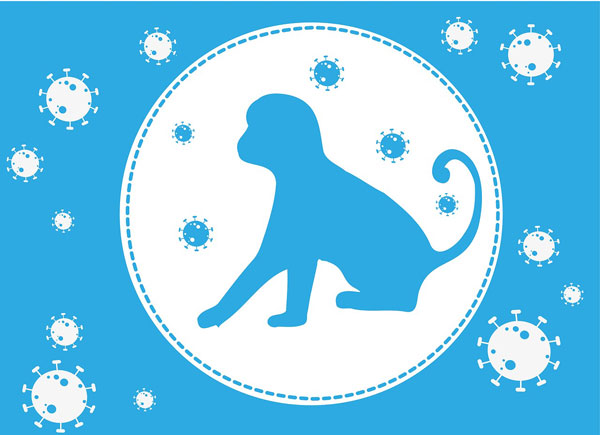Monkeypox strikes Africa again

[Monkeypox. Photo Credit to Pixabay]
Monkeypox (Mpox) has struck the globe once again, with a new strain of the Mpox virus, Clade 1b, infecting people in African regions after it was first reported on August 14th.
This infectious disease, caused by the monkeypox virus, is characterized by symptoms such as rashes, enlarged lymph nodes, fever, and headaches.
The virus spreads through close skin-to-skin contact or even via respiratory droplets from close proximity to an infected person.
While Mpox can be very dangerous, most people recover within two to four weeks.
The source of Mpox remains unidentified despite its name.
However, the virus is believed to be transmitted through small wild animals, particularly in West and Central Africa.
The World Health Organization (WHO) has declared a global health emergency, and the current endemic situation is raising alarms especially among travelers to and from African regions.
Countries such as Kenya and Uganda have increased border surveillance and came up with strict health protocols.
Travelers crossing the Congo-Kenya border are required to wash their hands thoroughly, and people showing symptoms are going through further medical evaluation.
The Democratic Republic of Congo (DRC) is currently experiencing Mpox crisis in the Kamituga area of South Kivu province, where many people are being infected with Clade 1b due to its rapid spread despite ongoing treatment.
Fortunately, vaccines are available to combat Mpox.
The U.S. government approved the JYNNEOS vaccine in 2022, originally developed for smallpox, which has proven effective against Mpox.
However, it is only authorized for individuals aged 18 and older.
Another vaccine, ACAM2000, is also available as an alternative.
The challenge within the African nations is that there are limited healthcare infrastructure, which makes it difficult for people to have access to those vaccinations.
International aid and partnerships with developed countries are crucial to improving vaccine distribution and availability in these regions.
It is now a priority to better control monkeypox outbreaks in African nations to prevent the global spread of the disease.
Surprisingly, this is not the first time the world has faced an Mpox crisis.
In fact, the Mpox outbreak has largely affected many people between 2022 and 2023, which started from a person in London who had traveled from Nigeria, where the disease has been endemic.
However, the lessons learned from past experiences emphasize the importance of swift action.
Health authorities are urging people to remain vigilant, follow hygiene protocols, and contact health care providers if symptoms appear to prevent further transmission and control the spread of the disease.

- Dongha Kim / Grade 12
- Branksome Hall Asia

![THE HERALD STUDENT REPORTERS [US]](/assets/images/logo_student_us.png)
![THE HERALD STUDENT REPORTERS [Canada]](/assets/images/logo_student_ca.png)
